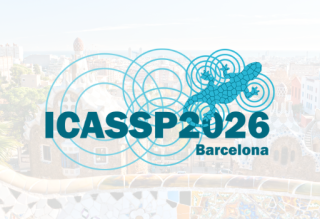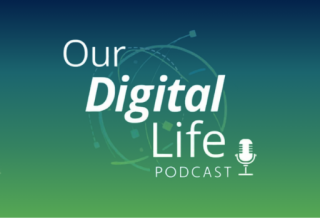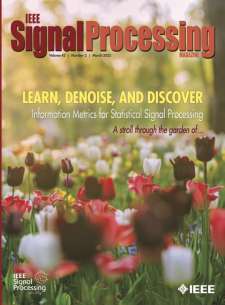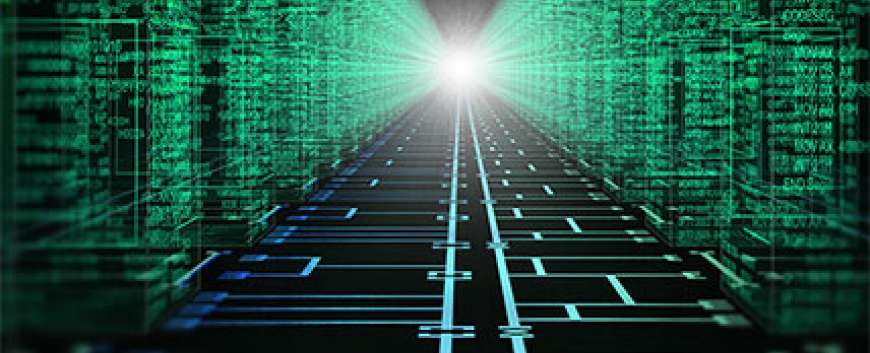Big Ideas or Big Data?
Top Reasons to Join SPS Today!
1. IEEE Signal Processing Magazine
2. Signal Processing Digital Library*
3. Inside Signal Processing Newsletter
4. SPS Resource Center
5. Career advancement & recognition
6. Discounts on conferences and publications
7. Professional networking
8. Communities for students, young professionals, and women
9. Volunteer opportunities
10. Coming soon! PDH/CEU credits
Click here to learn more.
Big Ideas or Big Data?
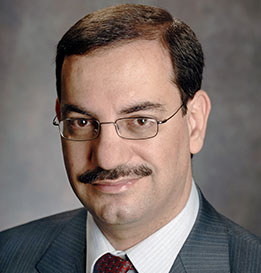 Many ask me what signal processing should be doing in the age of big data. My answer is clear: signal processing should continue to generate big ideas. Big ideas for big data.
Many ask me what signal processing should be doing in the age of big data. My answer is clear: signal processing should continue to generate big ideas. Big ideas for big data.
Our discipline has always advanced ingenious methods and theories, irrespective of the size of the data: small or big. Many of these ideas permeate disciplines far and wide, ranging from imaging to video; speech processing to coding and communications, forensics, security, and privacy; and also social media, machine learning, and data science.
Keep in mind that the qualification big is relative to the technology of the times. When we were trying to save large files onto floppy disks of limited capacity in the early 1980s or when we were trying to run complex simulations on a memoryconstrained desktop computer from that same time period, we were also dealing with big challenges. When researchers were attempting to compute large-scale discrete Fourier transforms two decades earlier in the 1960s, they were also faced with a big data problem for their time.
The size of the data has, of course, grown exponentially fast in recent years with the spread of cloud resources, social media, and online powerhouses such as Google, Facebook, Twitter, and Amazon. Many new and interesting research challenges are driven by this reality. Signal processing met similar challenges in the past with vigor and is already contributing to the new big challenges with remarkable strides. However, at times, we are victimized by our own successes. We have perfected our art so well that our contributions often go unnoticed to our detriment. As we like to say, signal processing has become the invisible intelligence behind our modern digital revolution, or “the science behind our digital life.” Our algorithms power everything from cell phones, to spacecraft, robotic explorers, imaging devices, automated systems, computing machines, as well as recommender systems. You name a technology, and you will find some signal processing concept or solution driving its functionality.
We are a singular discipline. The training we provide to our students and engineers is special. We prepare them with a unique gift to modeling, problem solving, and optimization. We know how to extract the essence of a problem. We are creative, inventive, innovative, and, above all, we like challenges. We also do not shy away from venturing confidently into other fields. I recall the time when my former Ph.D. advisor at Stanford University, Thomas Kailath - a giant in our field, an IEEE Medal of Honor recipient, and a U.S. National Medal of Science honoree by President Barack Obama - launched into a large project on semiconductor manufacturing in the early 1990s, which was a field well outside his domain of expertise. He ended up making award-winning contributions and also cofounded a successful company. That is the spirit of signal processing.
SPS Social Media
- IEEE SPS Facebook Page https://www.facebook.com/ieeeSPS
- IEEE SPS X Page https://x.com/IEEEsps
- IEEE SPS Instagram Page https://www.instagram.com/ieeesps/?hl=en
- IEEE SPS LinkedIn Page https://www.linkedin.com/company/ieeesps/
- IEEE SPS YouTube Channel https://www.youtube.com/ieeeSPS

